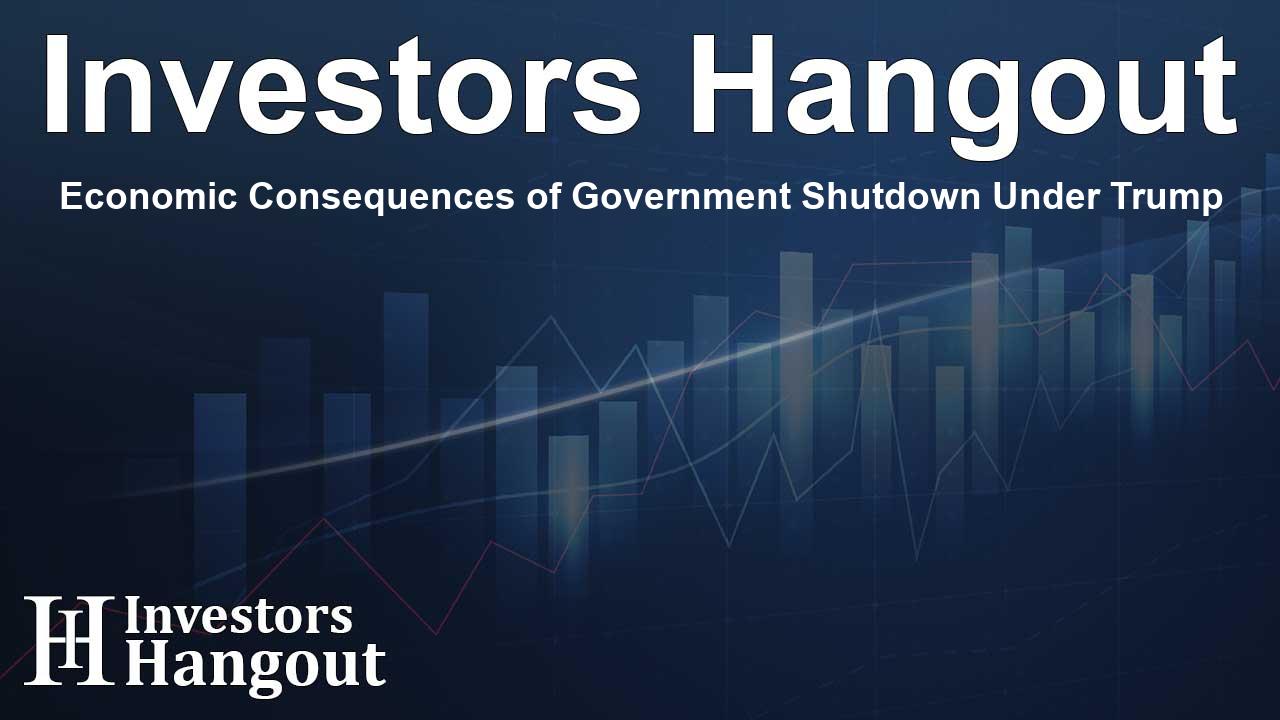Economic Consequences of Government Shutdown Under Trump

Understanding the Economic Effects of the Government Shutdown
The recent warnings from the Trump administration regarding the effects of the government shutdown have raised serious concerns about the potential economic fallout. If the shutdown extends for an entire month, experts predict it could lead to staggering losses in GDP and significantly increase unemployment rates.
Projected Weekly GDP Impact
A White House memo has revealed that a prolonged government shutdown might cost the economy as much as $15 billion each week. This alarming figure emphasizes the financial strain that the shutdown places on the U.S. economy.
Job Losses Expected
Alongside the predicted GDP decline, the memo indicates that the shutdown could result in an additional 43,000 job losses throughout the nation. This number does not include the federal civilian employees who are currently affected by the shutdown, highlighting the widespread economic effects.
Consumer Spending Declines
One of the most immediate impacts of a month-long shutdown would be a notable reduction in consumer spending, estimated at a loss of around $30 billion. Much of this loss would directly affect federal employees and ripple out to various sectors reliant on consumer spending, thus extending the impact on the economy.
Services Affected by the Shutdown
The memo outlines various federal services that would suffer significant cuts due to the shutdown. Programs like Women, Infants, and Children will see halted funding, social security services may face delays, and essential educational funding will be disrupted, revealing how deeply the shutdown will affect public services.
Market Reactions to Government Uncertainty
Following the begining of the shutdown, the markets braced for potential turbulence. Historically, while these shutdowns generate short-term volatility, they have also been shown to lead to relatively minor long-term impacts on financial markets. Investors often remain calm despite the considerable political uncertainty.
Reflection on Political Maneuvering
The government shutdown has emerged amid intense political maneuvering, highlighting underlying policymaking challenges. Criticisms from various lawmakers suggest that while there is a significant political backdrop to these events, market responders frequently focus on the macroeconomic factors rather than the immediate political landscape.
Conclusion and Future Outlook
With the ongoing discussions about budget resolutions and government operations, the potential economic ramifications remain a concern for both policymakers and the public. As the situation develops, monitoring economic indicators and government actions will be essential for anyone interested in understanding how these events will shape the future economy.
Frequently Asked Questions
What is the main economic concern regarding the government shutdown?
The primary concern is the significant potential loss in GDP, estimated at $15 billion per week, along with job losses impacting 43,000 individuals.
How does the shutdown affect consumer spending?
Experts predict a decrease in consumer spending by about $30 billion due to the furlough of federal workers and disruption of essential services.
Which services are likely to be impacted?
Critical services including the Women, Infants, and Children program, and funding for Social Security and Medicare are expected to see delays or cuts.
How historically have markets reacted to government shutdowns?
Markets often experience short-term volatility during shutdowns, but long-term impacts have been limited, and investors typically focus on broader economic trends.
What message does this shutdown send regarding political negotiations?
The shutdown underscores ongoing political challenges and weak policymaking, reinforcing concerns about the stability of government funding and operations.
About The Author
Contact Kelly Martin privately here. Or send an email with ATTN: Kelly Martin as the subject to contact@investorshangout.com.
About Investors Hangout
Investors Hangout is a leading online stock forum for financial discussion and learning, offering a wide range of free tools and resources. It draws in traders of all levels, who exchange market knowledge, investigate trading tactics, and keep an eye on industry developments in real time. Featuring financial articles, stock message boards, quotes, charts, company profiles, and live news updates. Through cooperative learning and a wealth of informational resources, it helps users from novices creating their first portfolios to experts honing their techniques. Join Investors Hangout today: https://investorshangout.com/
The content of this article is based on factual, publicly available information and does not represent legal, financial, or investment advice. Investors Hangout does not offer financial advice, and the author is not a licensed financial advisor. Consult a qualified advisor before making any financial or investment decisions based on this article. This article should not be considered advice to purchase, sell, or hold any securities or other investments. If any of the material provided here is inaccurate, please contact us for corrections.
